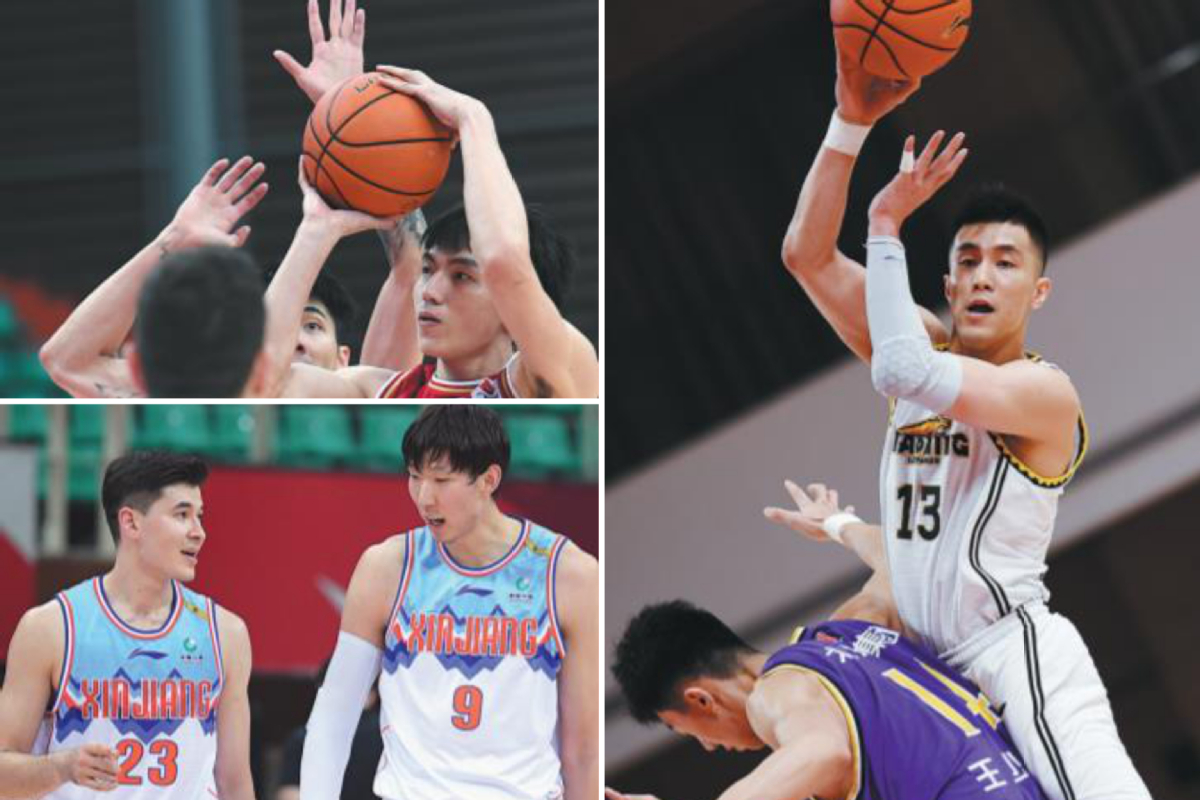Homegrown hoopsters light up CBA
 0 Comment(s)
0 Comment(s) Print
Print E-mail China Daily, April 16, 2021
E-mail China Daily, April 16, 2021

The CBA wrapped up its longest-ever regular season on Tuesday, with the growing prominence of young domestic talent and the return of fans to arenas during a coronavirus-free campaign giving the league plenty to cheer about.
The extended 56-game regular season, up from 46 last year, coupled with further limits on the use of import players, opened up more opportunities for Chinese talent to shine, as homegrown stars matured into leadership roles once the domain of former NBA players.
Even with prolific foreign scorers at their disposal, the league's top two-ranked teams-defending champions the Guangdong Southern Tigers and the Liaoning Flying Leopards-built their cores around domestic talent, such as Guangdong's back-court combo of Hu Mingxuan and Zhao Rui, and Liaoning's guard tandem of Guo Ailun and Zhao Jiwei.
"I am quite happy with our overall performance in the regular season, especially the improvement of our young players," Liaoning head coach Yang Ming said after his team beat the Tianjin Pioneers on Tuesday to enter the postseason with a 45-9 record.
"Our young local players had more minutes on the court and were played more at critical moments this year, showing more confidence and improving their ball-handling a lot. This is what we need as a franchise looking for long-term success."
This season's league MVP vote was considered one of the toughest choices in years, with debate raging online over the merits of the two fan favorites-Liaoning's Guo and eventual winner Wu Qian of the Zhejiang Golden Bulls.
Wu, who averaged 19 points, 7.6 assists and 3.6 rebounds in 46 games to lead the Golden Bulls to third place in the regular-season standings, earned the most votes for his impact on the league's second-youngest team, which has an average age of just under 22.
With American forward Sylven Landesberg the team's only foreigner in the first half of the season when other import players were stranded overseas due to the pandemic, Wu honed his scoring efficiency and playmaking ability, as well as emerging as a leader in the locker room.
"He's been training and playing as a leader throughout the season. I am not surprised at all about what he's capable of doing and the way he carries us through," Golden Bulls head coach Liu Weiwei said of Wu's progression.
By drafting more talent from the collegiate ranks at home and abroad, the league has also witnessed the rise of rookie players who dare to embrace big roles.
The close competition between Liaoning's Zhang Zhenlin and the Sichuan Blue Whales' Zhu Songwei for Rookie of the Year underlined the improving quality of talent drawn from the collegiate system.
Zhang, who won the award, averaged 14.2 points and 5.6 rebounds for Liaoning in 53 games (43 as a starter) and has been tipped as a future leader of China's national team.
During the CBA All-Star events last month, nine players drafted from the CUBA, the country's top collegiate league, showcased their talents in the slam-dunk contest, 3-point shootout and the rising stars game.
Sichuan forward Zhu, a CUBA standout from Shantou University, contributed 16 points and eight rebounds to lead the south conference to a 106-103 victory over the north in the rising stars game, ensuring he was one of the most-talked-about players on social media over the weekend.
Zhang, who studied and trained on the varsity program at Tulane University, Louisiana until he joined hometown team Liaoning last summer, attributed his standout rookie performance to the trust of head coach Yang.
"The first season helped me get familiar with the team's style of play and coach Yang did a great job pushing me forward individually, and collectively building chemistry with the team," said the 22-year-old, a son of former Chinese women's national team forward Wang Fang.
Loosely modeled on the US college system, China's professional leagues and elite national programs are extending their talent search into universities, highlighted by the increasing number of CUBA players drafted into the CBA over the past five years.
With the playoffs tipping off this week in Zhuji, where the season started behind closed doors, the CBA is working on detailed plans to allow more fans into arenas, having opened stadiums to a small number of spectators in the final stage of the regular season.
As the country continues to open up its sports and entertainment sectors, observers expect the CBA to return to its usual home-and-away format, with stadiums operating at half-capacity next season.





